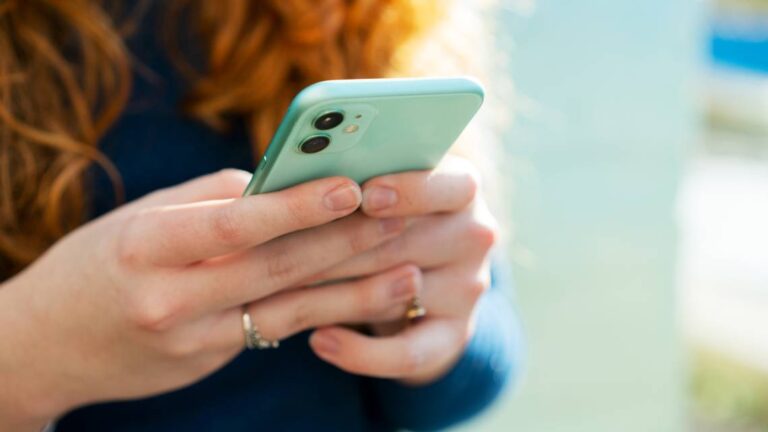California has launched two mental health apps for teens, young adults, children and parents — and they’re free to use.
[–>
Last year, the program was being tested in San Joaquin and Stanislaus counties but has recently become available statewide for those under 25, according to the California Department of Health Care Services.
[–>
Soluna and BrightLife Kids were launched Jan. 1 as part of the state’s CalHOPE program, with funding from the Children and Youth Behavioral Health Initiative to address the mental health needs of families, The Modesto Bee reported in November.
[–>
With a $4.6 billion budget, California’s five-year initiative works to provide free access to mental health services and support for substance use, including one-on-one support with a wellness coach and wellness exercises.
[–>
“DHCS is leading several initiatives to expand access to mental health and substance use disorder supports for children and youth,” the California Department of Health Care Services wrote in a statement to The Sacramento Bee on Friday afternoon.
[–>
Here’s what you need to know about California’s new, free mental health care apps:
[–>

How do the apps work?
[–>
“While both apps offer similar services, the main difference between the two are their audiences,” the department wrote.
[–>
BrightLife Kids is intended for children under 12 years old and their parents or caregivers. Soluna is an anonymous app intended for minors and young adults between the ages of 13 and 25.
[–>
“The apps are tailored to those age groups,” the department wrote.
[–>
BrightLife Kids aims to help parents and children address a variety of issues, including tantrums, sleep habits, peer pressure, bullying, sadness, anger and more, the department said. Soluna addresses issues among older kids and young adults, such as stress management, social pressure and bullying.
[–>
According to the department, services on both apps include:
[–>
- Coaching: Pre-clinical and sub-clinical coaching sessions with behavioral health coaches.
- Educational content: Age-tailored articles, videos, podcasts and more are available to access.
- Assessments and tools: Tools to handle stress are available. Users can access tests to help track their mental well-being.
- Off-platform services: A guide is provided to help find nearby services for mental health support.
- Community engagement: Users can utilize forums, which are supervised by moderators, and activities to connect to other users.
- Crisis and safety protocols: Crisis and emergency safety resources are available.
[–>

How can I access the free mental health apps?
[–>
Soluna is free to download for eligible Android and Apple users.
[–>
BrightLife Kids is available for eligible Apple users at no cost. Access for Android users is “coming soon.”
[–>
No medical insurance is required to access the apps and mental health services, both websites said.
[–>
How will minors be monitored while using the apps?
[–>
The department and its vendors, such as behavioral health coaches, follow state and federal laws pertaining to parental consent, privacy and security of the apps, the department said.
[–>
“For Soluna, all of the users on the app are anonymous,” the department wrote. “Any user-generated content is pre-moderated and approved by trained and licensed professionals prior to the post being made public.”
[–>
Moderators only approve content that is aligned with the goals of the department’s Children and Youth Behavioral Health Initiative and the Soluna app.
[–>
“Users within the Soluna app are not allowed to directly interact with each other, and there is no mechanism for them to contact each other and share personal information,” the department wrote.
[–>
For BrightLife Kids, the department said “there is a dyadic coaching model in which services are provided jointly” for minors and their parents or guardians.
[–>
“There is no independent usage by children and youth,” the department wrote.
[–>
Though eligible minors can access the app anonymously, federal law does not require websites, online services and mobile apps for children to have parental consent if they are over age 13, according to California’s Department of Justice.
[–>
“California law allows minors 12 and older to consent to mental health treatment, when clinically appropriate,” the department wrote.
[–>
If a moderator senses potential danger, a licensed clinical professional would intervene directly with the user or help them find the most appropriate external service to support them, the department said in a statement to The Bee in November.
[–>
“The apps use tools to flag any language that warrants additional review, and each vendor follows strict safety and escalation protocols if risks are identified by a user within the app,” the department wrote.
[–>

Why is California offering free mental health services?
[–>
In California, about one out of three adolescents in California experienced serious psychological distress between 2019 and 2021, according to a study conducted by the University of California, Los Angeles.
[–>
“As our nation grapples with a shortage of health care providers and a surge in youth mental health crises, we hope this platform will help Californians get the help they need wherever they are,” the department wrote.
[–>
As part of CalHOPE, the department also offers a free hotline available 24/7 for Californians of all ages at (833) 317-4673. Through the hotline, callers are connected to peer counselors for assistance with stress, anxiety and depression.
[–>
Californians can also get immediate support if they are experiencing a mental health crisis by calling the 988 suicide and crisis lifeline at any time, seven days a week, the department said.
[–>



